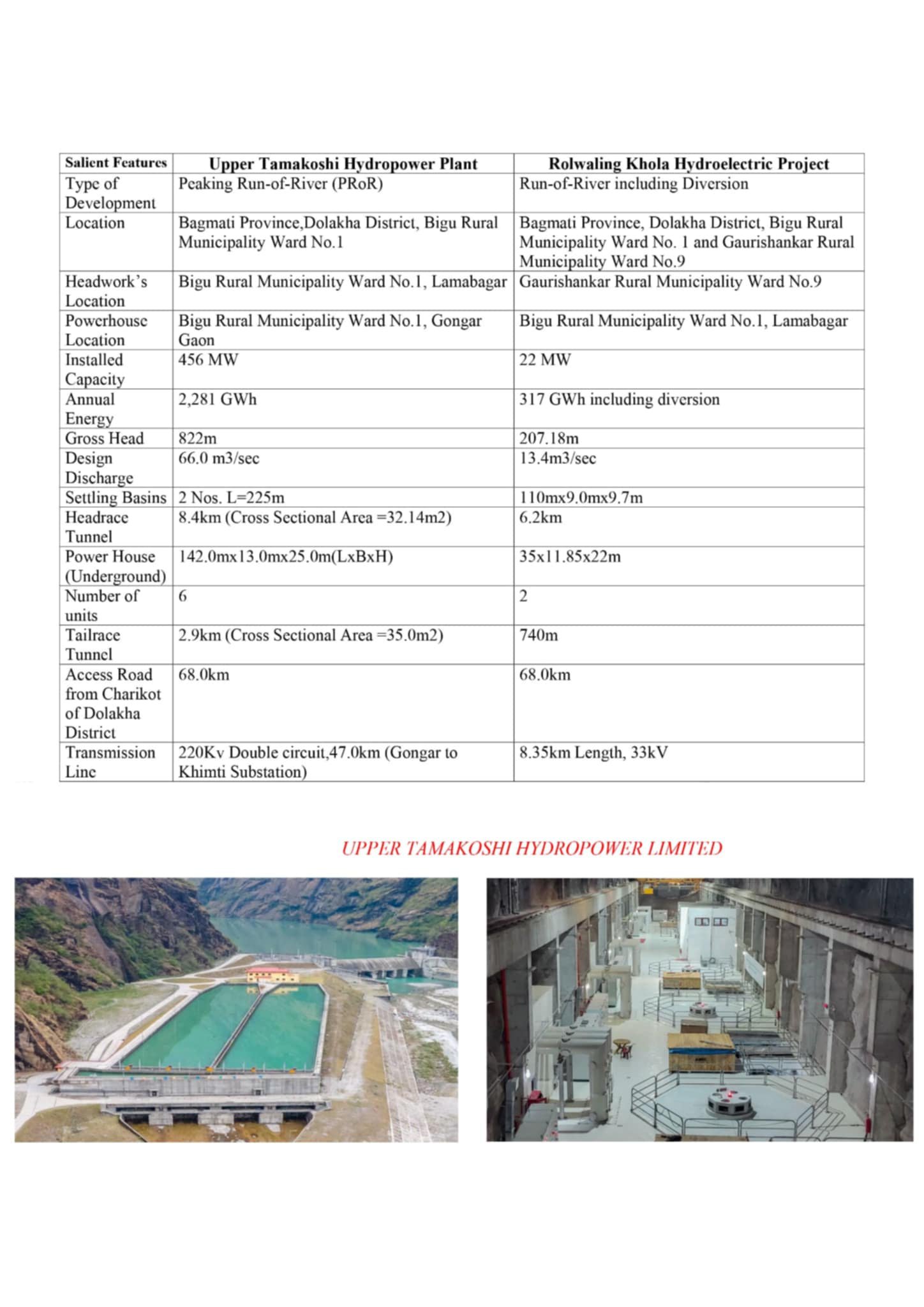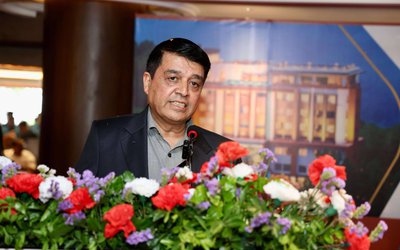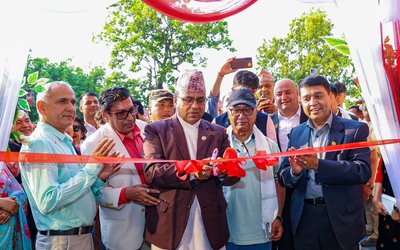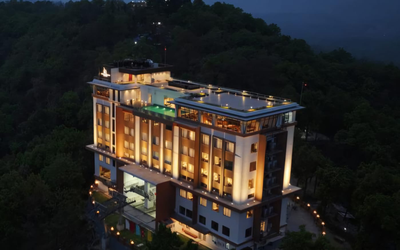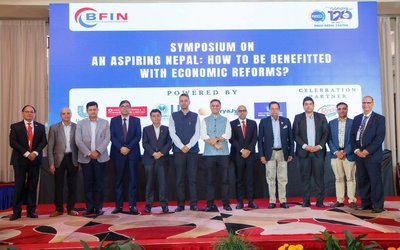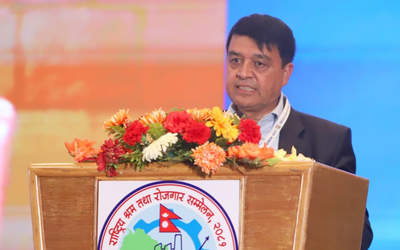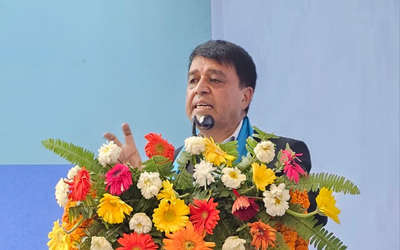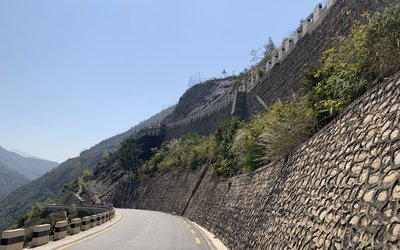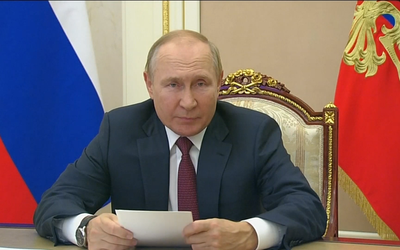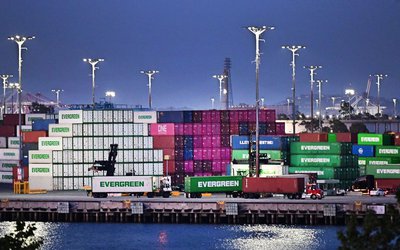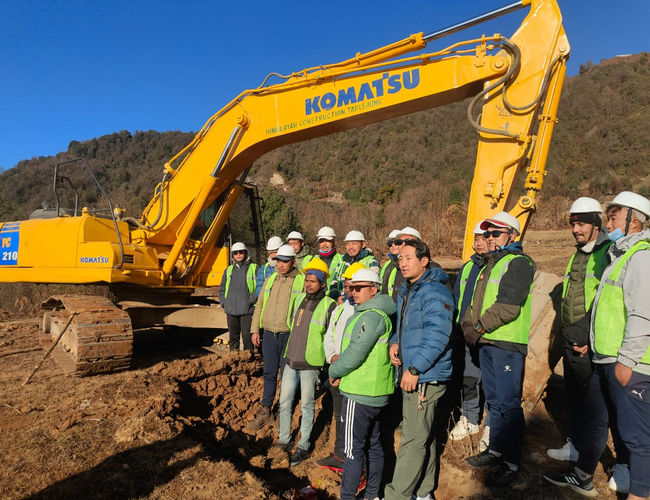
Pathibhara Devi Darshan Cable Car Company has called on the protesting parties for talks in protest against the construction of the cable car under construction in Pathibhara, Taplejung district.
"Issuing a press release, the company stated that during a press conference held in Kathmandu last week, concerns raised by local residents regarding the under-construction cable car project in Pathibhara, Taplejung district, were acknowledged. The company appreciated the initiative taken by youths and various local organizations to address these concerns through dialogue and discussion, with the aim of creating a conducive environment for the project's development, and said it views this positively.
The company affirmed that it has always held the demands and concerns of the local community in high regard and expressed its commitment to preserving and promoting the local religion, culture, identity, and heritage, assuring full support from its side to the extent possible.
It further stated that the project is being developed in compliance with all necessary government procedures, including environmental impact assessment, as per the standards set by the Government of Nepal. The company emphasized that the construction will be carried out in accordance with local art, culture, identity, and religious traditions. It also mentioned that it will continue to coordinate with local representatives and stakeholders through dialogue and discussion as needed.
‘We believe that any issue can be resolved through dialogue and communication. We welcome the request made by local youths for dialogue to address the concerns related to the cable car construction, and we are ready to engage in talks on this matter,’ the press release stated."
Pathibhara Devi Darshan Cable Car Pvt. Ltd. was registered at the Office of the Company Registrar on Ashoj 11, 2072 B.S. (September 28, 2015). The company's objective is to develop necessary infrastructure in this touristic area, significantly increase the number of visitors, and contribute to the preservation of its religious and cultural heritage, as well as support the local social and economic development.
Since its establishment, the company has been advancing the construction of a cable car to facilitate easy access for pilgrims and tourists visiting Pathibhara Devi in Taplejung district, completing all legal procedures required for the project.
The bottom station of the cable car is located in Kaflepati, Ward No. 11 of Phungling Municipality, Taplejung district, and the upper station lies just outside the Pathibhara Devi temple premises. The total length of the cable car route is 2.75 kilometers.
The Initial Environmental Examination (IEE) report required for this project was approved by the Ministry of Physical Infrastructure and Transport and the Ministry of Forests and Environment. The project also received land use rights through a decision of the Council of Ministers of the Government of Nepal. A total of 106 ropanis of land was purchased and handed over to the government in exchange.
The site clearance work, including the necessary tree felling for project development, has already been completed. Furthermore, for every tree cut, the project will carry out plantation of 25 trees as part of its environmental commitment.
The project has so far completed several works including the construction of an access road to the project site, expansion of the electricity line, drinking water management, detailed engineering design, soil testing, and the construction of a camp at the lower station for workers.
It has come to our understanding that the protests carried out in opposition to the under-construction Pathibhara Devi Darshan Cable Car by various groups—who believe it threatens their identity, dignity, local religion, culture, and traditions—are based on three primary concerns that could be considered their key demands or agendas.
Full Statement
While the cable car is being constructed, there must be assurance of the preservation of identity, dignity, and self-respect. The protesting groups also wish to clarify that indigenous communities are not against development.
The construction of the cable car must guarantee the protection of the indigenous peoples’ original religion, culture, and traditions, as well as ensure local employment and related opportunities.
If the government and the construction company do not address these vital identity- and dignity-related agendas, some voices have expressed that the cable car project should not be allowed to proceed.
In reality, we are a business company; we are not a political force that provides identity. However, we acknowledge that, in today’s global political context, the relationship between development and identity has become a shared and recognized reality. Therefore, we highly respect and welcome the understanding expressed by the protesting parties—that while they may take steps or launch movements in the name of identity, they are not against development if there is recognition of their identity and dignity, and that all problems can be resolved through dialogue and discussion. This reinforces our belief that the protesters are not anti-development.
A cable car is one of the most environmentally friendly means of transportation that can be developed with minimal harm to nature. Its construction can be carried out in a way that avoids damaging forests, biodiversity, and the natural environment, and it can also be operated using renewable energy.
This company is committed to moving forward with its work by always honoring ancient civilizations, all religions, cultures, traditions, and the dignity and identity of local communities, in consultation and collaboration with relevant individuals, institutions, and intellectuals.
We would like to express our commitment to continue supporting the preservation and promotion—both nationally and internationally—of local religion, culture, identity, and heritage, while also respecting the demands of all stakeholders, creating employment, and contributing to social and economic development, as well as to the protection of identity and dignity.
This company is currently in the process of constructing the project after completing all legal procedures required by the Government of Nepal. We would like to inform that the project will be developed in accordance with local art, culture, identity, and religious traditions, and will move forward through dialogue, discussion, and coordination with local representatives and all concerned stakeholders as needed.
We believe that any problem can be resolved through dialogue and communication. Among the issues raised regarding the cable car construction, we have taken all demands made by the protesting groups—except the demand to cancel the cable car project itself—in a positive light, especially those related to identity and self-respect.
We assure that we are open to taking all possible steps from our side to address the concerns raised by the protesting groups related to the cable car project, and we sincerely call upon all concerned parties to engage in dialogue and discussion to find solutions.
Finally, we are hopeful that this project will contribute to the social, economic, and cultural development of the local community through internal and external tourism, and make a significant contribution to the overall economic and social development of the country said Rudraraj Paudel, Director, in a statement.
- Weather Forecast: Partly Cloudy With Brief Rain Is Likely In Kathmandu, Pokhara And Biratnagar
- May 13, 2025
- IME Group’s Ila Hotel Opens in Maulakali, Gaindakot
- May 12, 2025
- Markets rise worldwide after breakthrough in US-China trade talks
- May 12, 2025
- India and Pakistan Averted War After We held discussions: Prime Minister Oli
- May 12, 2025
- IME Group's investment in Maulakali, Nawalpur's Ila Hotel to be launched
- May 12, 2025
